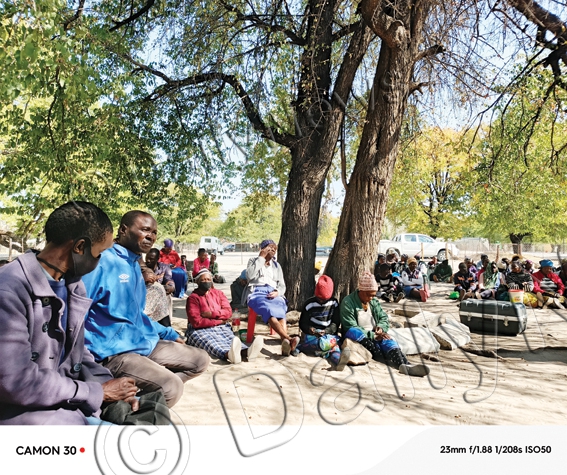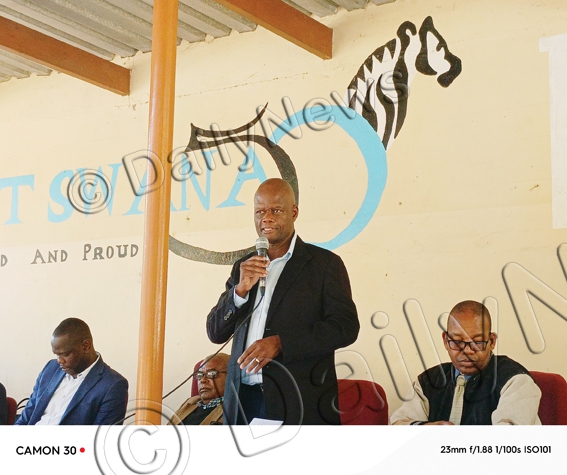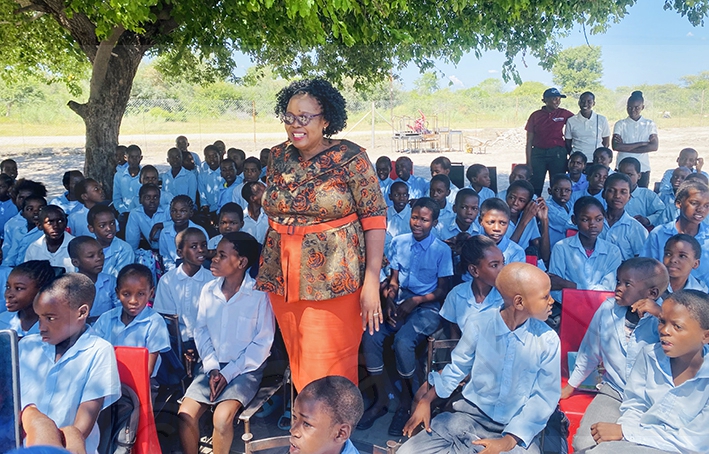Conserving mitigating human-wildlife conflict Botswana story
02 Oct 2024
Human-wildlife conflict presents a significant threat to communities residing near wildlife areas in Botswana. Experts, community members, and organisations are advocating for management strategies to address problematic animals and alleviate these conflicts.
While acknowledging the economic benefits of wildlife conservation, residents stress that more must be done to mitigate the negative impacts of human-wildlife interactions on their livelihoods. Many call on the government to achieve a balance between the demands of tourism and agriculture.
In one of the kgotla meetings in Matlapana ward, residents expressed the urgent need for the government to create a safer environment, safeguarding both human lives and conservation efforts.
These discussions form part of a strategy development initiative led by the Okavango Research Institute (ORI) at the University of Botswana.Agriculture serves as the primary source of sustenance for these communities, and residents are urging the government to consider reducing the elephant population, which has been a major source of hardship.
Reports of elephants invading ploughing fields and homes have left many in fear and compelled some to abandon their farms entirely.
Some community members are advocating for the establishment of abattoirs for elephant meat sales, while others have suggested increasing hunting quotas for community trusts involved in sustainable hunting tourism.
Furthermore, residents are requesting government support to monitor elephant movements and fund local conservation activities.
“Every year, we cultivate our ploughing fields only to be frustrated by elephants that raid them day and night,” lamented resident Ms Otshwanetse Phorano, who called for the reduction of the elephant population to manageable levels to support their farming endeavors.
Professor Joseph Mbaiwa from ORI highlighted the need for short and long-term plans to manage wildlife conflicts, particularly in light of Botswana’s large elephant population. He noted that such conflicts often arise from the overlap of elephant habitats and human settlements, causing significant destruction of crops and property, especially in rural areas where resources are limited.
Through consultations across the country, Prof. Mbaiwa identified prevalent issues, including threats to human safety, property damage, and crop losses, particularly from elephants that raid farmlands adjacent to their habitats.
He acknowledged residents’ proposals for mitigating these conflicts, including the installation of electric fences around farms, community engagement, and educational initiatives to promote wildlife conservation and conflict management strategies.
Prof. Mbaiwa further emphasised the necessity for early warning systems to alert communities of approaching elephants, enabling them to take preventative measures. He commended ongoing government and conservation organisations’ efforts to balance the needs of both local populations and elephants to ensure the long-term survival of wildlife.
Mr Oaitse Nawa, founder of the Elephant Protection Society, emphasised the importance of awareness campaigns to help communities live harmoniously with wildlife. He pointed out that understanding local attitudes towards human-wildlife conflict is essential for designing effective mitigation strategies.
“It is important to educate the community about the immense value of elephants,” Mr Nawa said, highlighting efforts to empower residents to explore income-generating projects that also support conservation. He noted that during the dry season, elephants migrate toward communities in search of water, amplifying the risks to local populations. ENDS
Source : BOPA
Author : Esther Mmolai
Location : MAUN
Event : Kgotla meeting
Date : 02 Oct 2024







